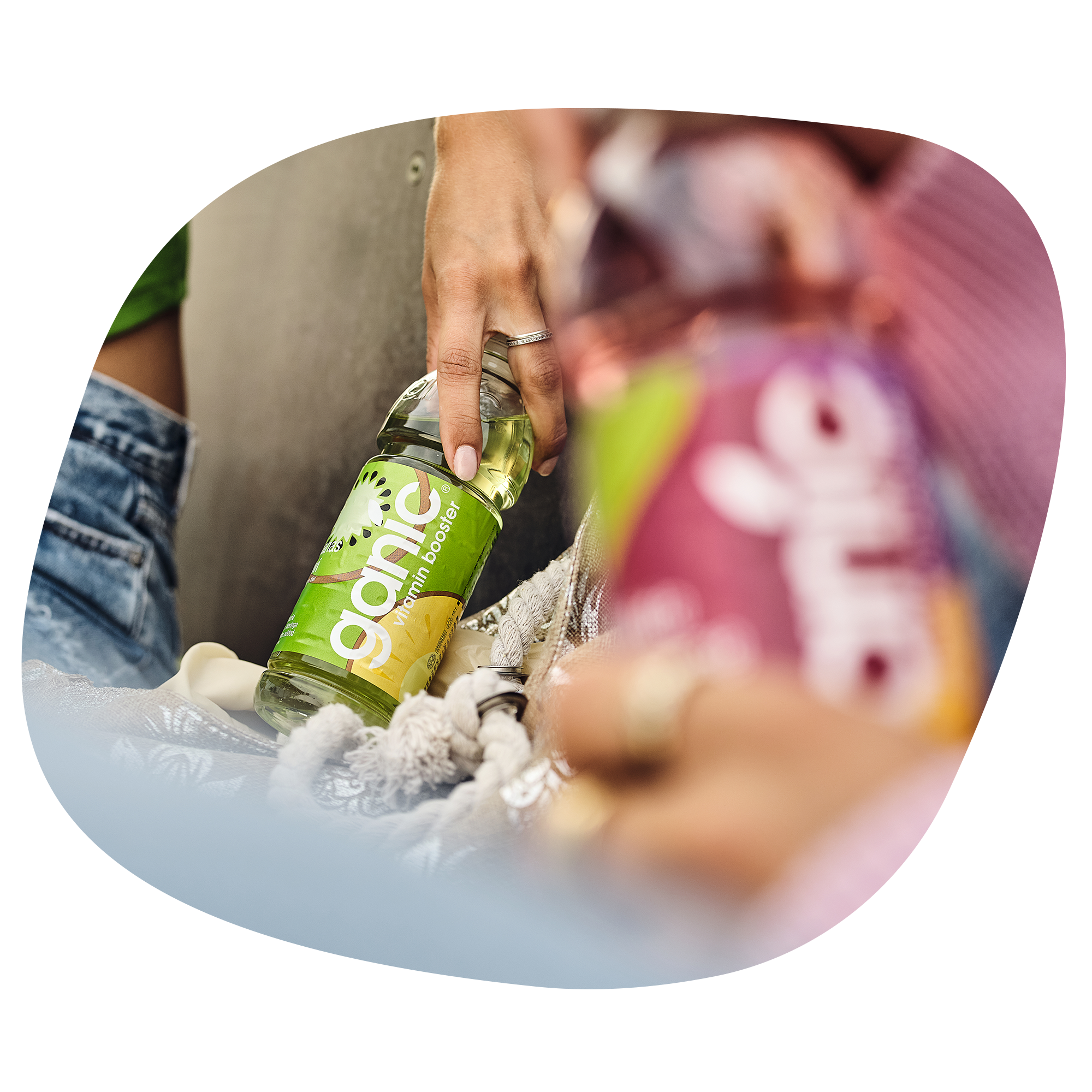
Derived from the Latin word “vita” – “life”, the importance of vitamins can be well explained.
Vitamins are essential substances that the human body needs for a balanced metabolism.
Unfortunately, with a few exceptions (vitamin D), our body cannot produce
these vitamins itself and is dependent on the ingestion with food.
Therefore, a healthy and balanced diet is important and necessary.
Fat-soluble vitamins can be stored by the body. In addition,
fats are required as a transport medium for a better absorption of these vitamins.
(belong to it: Vitamin A, Vitamin D, Vitamin E and Vitamin K)
Water-soluble vitamins are not stored in the body and are processed directly. An excess
is not possible because the body excretes the excess of these vitamins.
(belong to it: Vitamin B1, Vitamin B2, Vitamin B3 (Niacin), Vitamin B5 (Pantothenic acid), Vitamin B6, Vitamin B7 (Biotin), Vitamin B9 (Folic acid), Vitamin B12, Vitamin C)

Water in the morning
To start fit into the day, you should drink a large amount of water in the morning. Just put your favourite ganicwater® next to your bed for the right vitamin boost when you get up.
Perceive warning signals
Knowing your own body is very important because it sends you important warning signals. Fatigue, headaches, and concentration problems are clear warning signs of dehydration that you should counteract immediately.
Large water glasses
A simple tip, but very effective! Use large water glasses, so you will automatically drink more.
Develop rituals
For example, drink a glass of water to every cup of coffee or tea you drink. This is how you automatically consume more fluids.
Keep water handy
If you feel thirsty, you have already been drinking too little. Whether in your backpack, handbag, or training bag, ganicwater® is easily stowed away with its high-quality 0.5l PET bottle.
Use apps
Instead of an alarm clock, you can use special apps for smartphones and smartwatches that regularly remind you to drink.
*acc. deutscher Gesellschaft für Ernährung e.V.

Set up the workplace
An orderly atmosphere is important when working from home. The best way to do this is to set up a permanent workplace leaving a signal that people are working here. After all, on the couch, in bed and in front of the television you should relax.
Establish a routine
A regulated process helps to start the working day and to focus. These include appropriate clothing and fixed working hours. Make a solid plan for when to start working, when to take breaks, and when to stop working.
Communication
Communication in home office can be versatile: calls, emails, video chats via teams or zoom as well as instant messaging services. Find out which is the ideal way for you to stay in personal contact with colleagues.
To-do lists
Make a list of the most important to-dos for each day. Which projects are acute and what has already been done? Important projects should be tackled before the routine tasks.
Breaks
Breaks should also be observed in the home office and are important. Get some fresh air or change rooms. A healthy lunch can also help get your head back on track.
Distraction
Try to avoid any distractions while working at home.
The private cell phone is only used during the breaks. Laundry and cleaning are done after work or during the breaks. Having your own separate work spot can help you concentrate completely on your work.
Exercise and fresh air
… invigorate body and mind. From time to time let some fresh air in and even if a walk in the lunch break is not an option – a short walk to the kitchen or a little stretching exercise also contribute to well-being and a better concentration.